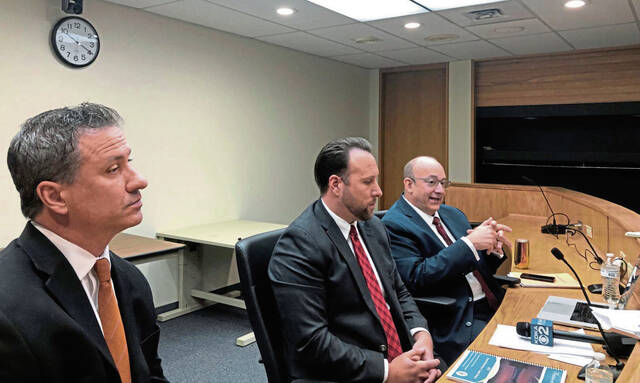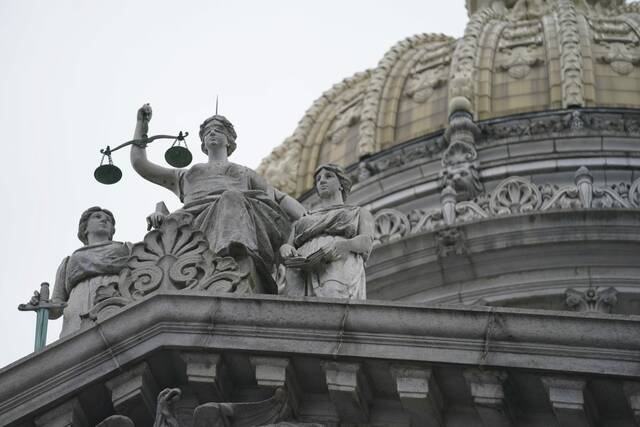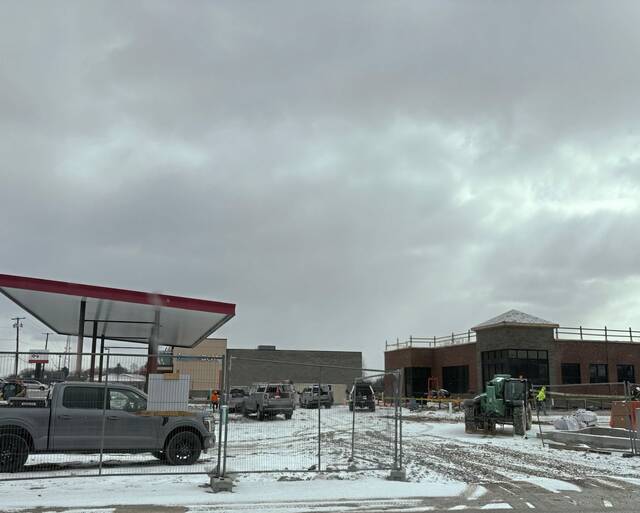A 32.5% property tax increase approved Thursday by Westmoreland County commissioners was necessary, they said, to balance the county’s 2024 budget while allowing the county to preserve some fiscal reserves.
Commissioners cited spiraling costs to pay off existing debt, increases in the cost of health benefits for employees and added contributions to workers’ pension accounts as core challenges in building the $456.7 million spending plan.
The tax increase is the first since a 2.4% hike in 2019 and only the second time since 2005 that the county raised its property tax.
Officials said the average property owner in the county will pay an additional $10 each month as a result of the tax hike.
“I’ve been warning since I took office in August that this county was falling off the fiscal cliff,” Commissioner Ted Kopas said. “And, while I can’t be responsible for the past three years, I certainly have an obligation to cast difficult votes, as distasteful as they might be, to make sure this government remains solvent.”
The 2024 budget is the fourth approved by Republicans Sean Kertes and Doug Chew.
The tax hike comes in two parts. One, a 3.51-mill increase, will be used to fund general government operations and moves the county tax rate to the state-mandated limit of 25 mills. A second tax of 3.48 mills will be used specifically to make debt payments that will exceed $14 million next year.
“When you have record-high inflation, you’re lacking employees and we’re paying more into our pension every year, we have the perfect storm of consistent problems year after year. Taxes should have been raised years ago, and we’re obviously coming to the point where we are left with no other alternative to do this,” Kertes said.
Each mill of taxes generates about $4 million in revenue, according to Meghan McCandless, the county’s director of financial administration. She said the budget also relies on transferring $25 million from the county’s portion of American Rescue Plan funds to pay for general operations.
The county received $105.4 million in federal funds in 2021 to be used for covid-relief efforts. With the large portion of remaining funds from that program being used to cover budget shortfalls, commissioners will have just $11 million of covid-relief money left to use in 2024.
Commissioners allocated about $8 million in American Rescue Plan money to fund government services in 2023.
“The ARP funds allowed the commissioners to delay tax increases as long as possible,” McCandless said.
Overall, spending next year is projected to increase in large part because of a $3.1 million increase in health care costs and another $4 million jump in expenses to ensure the county’s pension fund is adequately funded.
For the first time in more than 20 years, revenues will outpace expenses in the general fund portion of the budget. That change comes through a bookkeeping maneuver enabled by the newly imposed debt tax and allows the county to pay for its future obligations from a separate account.
Surplus preserved
For decades, commissioners passed deficit budgets that were balanced through the use of surplus funds.
Without a tax increase, that surplus was expected to be all but exhausted by the end of 2024.
Commissioners now say the county is projected to end next year with more than $20 million in the bank.
“This is a hard pill to swallow for our residents, but this is how government is supposed to work — bipartisan efforts, working for the people. Obviously, it’s not a vote we wanted to do but we had to do to provide the services needed for Westmoreland County,” Kertes said.
More than 32% of the budget, about $149 million, is allocated to human service programs. Public safety, which includes operation of the county jail, juvenile detention center and 911 services, accounts for almost 14% of county spending, nearly $63 million. County courts will cost more than $38 million and make up about 8% of the budget.
All general operating expenses are expected to increase by about $9 million next year.
“Even our general fund expenses from last year to this coming year, the budget is only changing 6%. So, inflation is 17% … and our expenses we’re keeping at 6%. Even with that, the fiscal conservative nature of building the budget would not allow us to move forward (without a tax increase),” Chew said.















